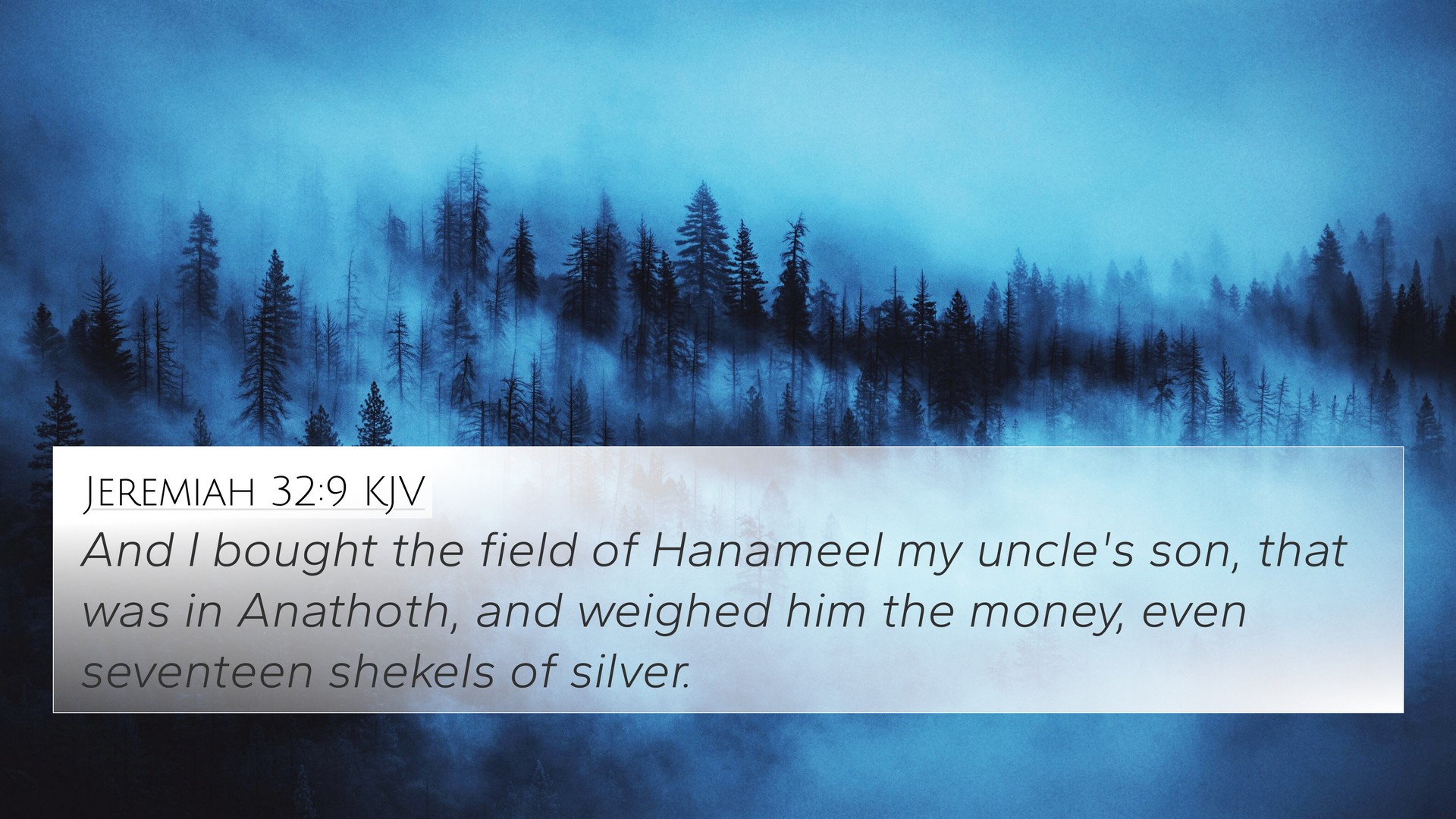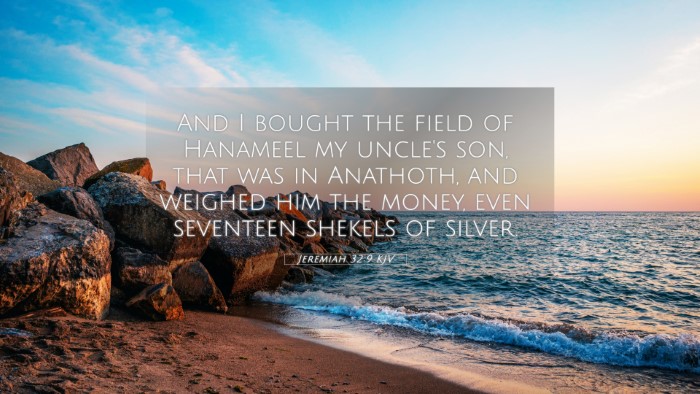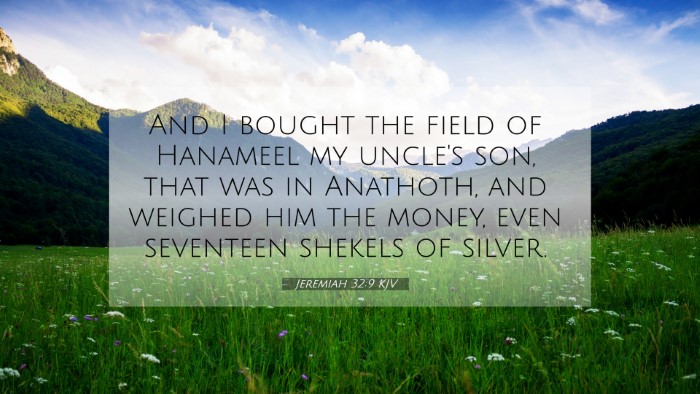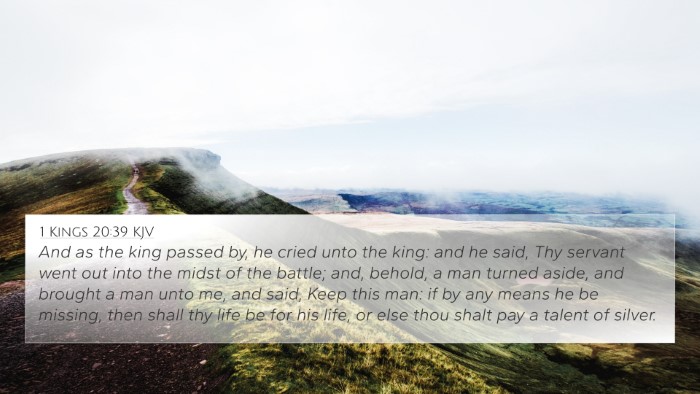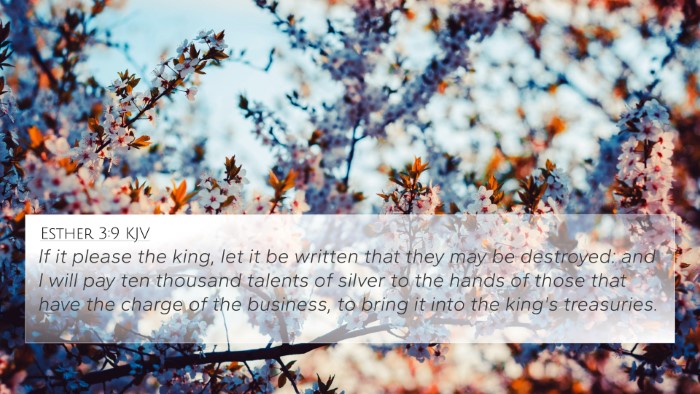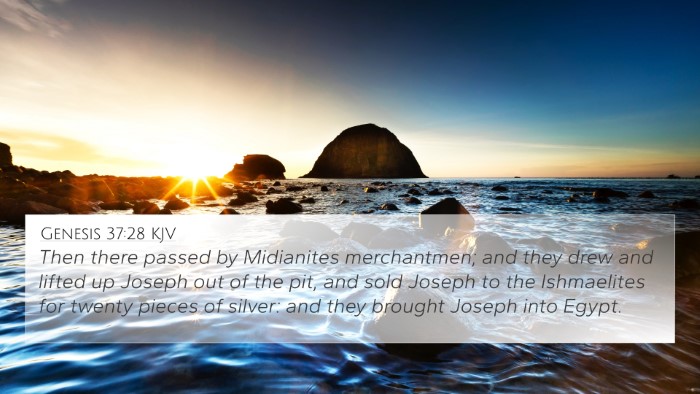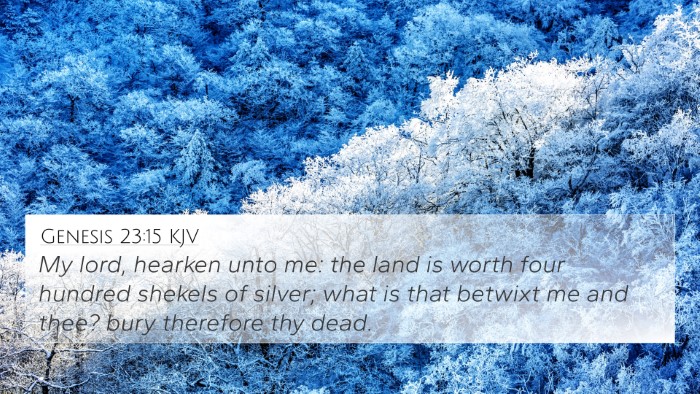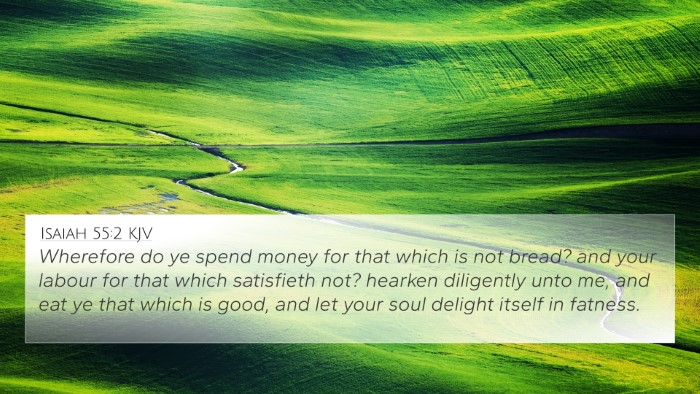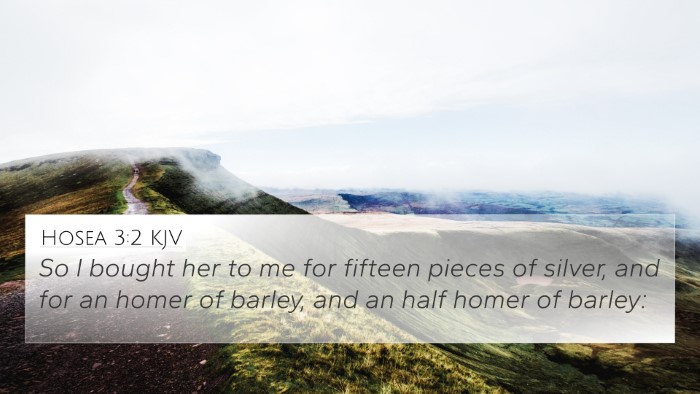Understanding Jeremiah 32:9
Verse: Jeremiah 32:9 - "And I bought the field of Hanameel my uncle's son, that was in Anathoth, and weighed him the money, even seventeen shekels of silver."
Summary and Interpretation
This verse chronicles the purchase of a field by the prophet Jeremiah, which serves as a symbolic act of faith regarding God's promises to restore Israel. Through the lens of various commentaries—including those by Matthew Henry, Albert Barnes, and Adam Clarke—we discover profound theological and practical implications of this act.
Contextual Background
The purchase occurs while Jerusalem is under siege, illustrating Jeremiah's unwavering faith in God's future restoration. This act not only signifies trust in God’s promises but also expresses a desire to preserve the inheritance of the land, which is significant in Israelite culture.
Commentary Insights
- Matthew Henry: Emphasizes that Jeremiah's purchase illustrates his faith amid dire circumstances; it signals that God will fulfill His promises despite current despair.
- Albert Barnes: Points out that Jeremiah's actions were a declaration of hope for a future restoration, reinforcing God's covenant with Israel. The acquisition of property symbolizes the permanence of God's promises.
- Adam Clarke: Discusses the implications of the number of shekels—seventeen—as potentially significant within biblical numerology and how it relates to the themes of completion and divine providence.
Thematic Connections
This verse establishes a connection with various biblical themes, including:
- Promise of Restoration: Jeremiah’s faith in God's promise to bring Israel back to their homeland is pivotal. This can be linked to Isaiah 43:5-6, which emphasizes God's pledge to gather His people.
- Faith in Adversity: The act of purchasing land during a siege reflects deep faith, as seen similarly in Hebrews 11:1, which discusses faith as assurance in things hoped for.
- Inheritance and Land: The significance of land in Israelite culture leads us to Joshua 14:9, where land inheritance is a key promise to God's people.
Cross-References and Related Verses
Here are some key Bible verses that relate to Jeremiah 32:9:
- Isaiah 41:10 - Promises God's support and strengthening in times of fear, paralleling Jeremiah's act of buying the field in bleak times.
- Jeremiah 29:11 - Affirms God's plans for His people—a future and hope, reflecting the intent behind Jeremiah's actions.
- Romans 4:20-21 - Highlights Abraham's faith in God's promise, echoing the themes present in Jeremiah's experience.
- Amos 9:14 - Prophesies the restoration of fortunes, aligning with Jeremiah's purchase as an act of prophecy.
- Mark 11:24 - Encourages faith in receiving what one prays for, resonating with the expectation that Jeremiah had in God's promises.
- Ezekiel 37:21 - Speaks to God's gathering of Israel from among nations, central to the significance of land ownership.
- Luke 12:32 - Assures believers that God has given them the kingdom, metaphorically linking to Jeremiah's land acquisition.
Practical Applications
This verse encourages believers to maintain faith and act upon God's promises, even when circumstances appear bleak. The purchase serves as a reminder that God’s faithfulness extends beyond the temporal moment, and our actions can reflect deep trust in His sovereignty.
Conclusion
Jeremiah 32:9 embodies a powerful message of faith, hope, and the unyielding nature of God's promises. As you explore this scripture, consider how it connects with other biblical texts to form a broader understanding of God's narrative throughout Scripture.
